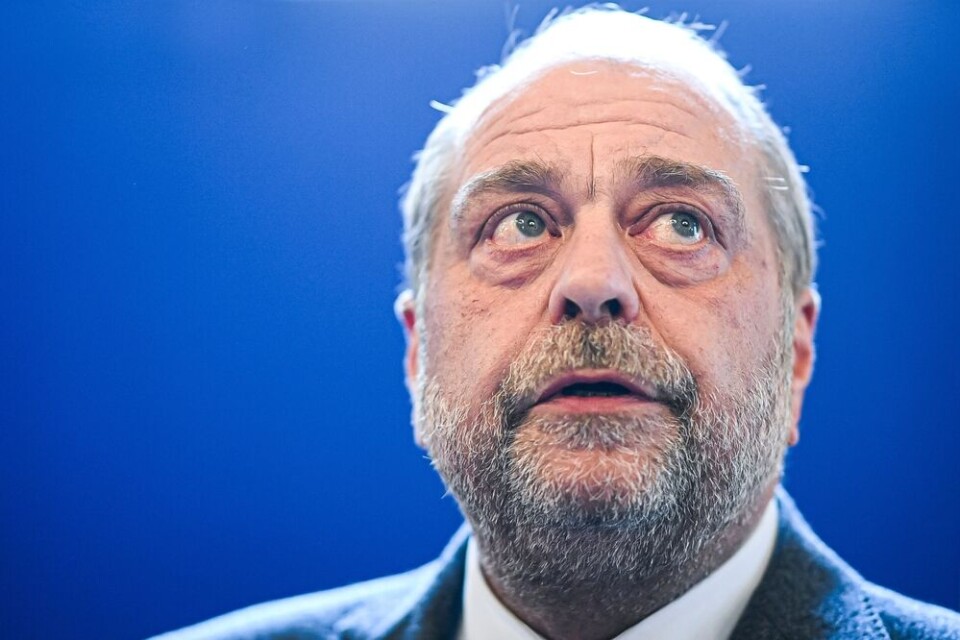-
The curious case of Good Friday: Why only some parts of France get the day off
Three French departments benefit from two extra public holidays
-
How long does it take to sell property in different areas of France? New study
Many major cities are showing signs of recovery when it comes to supply, demand, prices, and time to sell
-
Map: Car insurance costs rise in France - see the average in your region
Multiple studies show that costs are rising by around 5% year-on-year, with major differences by region and vehicle model
Why France’s justice minister is himself on trial
In an unprecedented scenario, the former high-profile lawyer faces charges into ‘illegal conflicts of interest’

The trial of France’s justice minister begins today (November 6). He stands accused of using his influence to order baseless sanctions and inquiries against magistrates who were investigating his former clients and friends.
Eric Dupond-Moretti, officially titled le garde des Sceaux (Keeper of the Seals/Law), is being tried by the Cour de Justice de la République (CJR); a special court that judges members of the government for actions during their time in office.
However, it is the first time that a serving minister has been tried.
Mr Dupond-Moretti was a criminal lawyer before he was appointed justice minister in 2020. He is now facing charges of having used his influence as a minister to help bring baseless sanctions against four lawyers who were investigating his friends and clients.
This is considered an illegal ‘conflict of interest’ offence.
Monaco judge
One high-profile case was of Judge Levrault in Monaco. He investigated Russian billionaire Dmitry Rybolovlev (president of AS Monaco football club); Christophe Haget, the head of Monaco's judicial police; and Philippe Narmino, who was Monaco's equivalent justice minister.
The judge’s position was not renewed in 2019, after Mr Narmino’s successor claimed that he “raises suspicions about all sorts of people”.
However, Judge Levrault later claimed that he was dismissed because he had investigated Mr Rybolovlev and Mr Haget, who had been represented by Mr Dupond-Moretti.
Mr Dupond-Moretti disputed the judge’s claims, and later called him a “cowboy” in the press. The minister then filed a complaint to the magistrate watchdog le Conseil Supérieur de la Magistrature (CSM), asking that Mr Levrault be disciplined.
Later, Mr Dupond-Moretti was appointed justice minister in President Macron’s cabinet, which placed him within a ‘conflict of interest’ position in many high-profile cases. This intensified after he asked his chief of staff to launch an inquiry into Judge Levrault. This move was later widely criticised. It also prompted then-Prime Minister Jean Castex to issue two decrees, which removed Mr Dupond-Moretti from any further actions in any cases he had been involved in prior to his appointment.
Yet, Mr Dupond-Moretti stands accused of continuing to be involved in the case, including having met with former associates and high-ranking officials, despite having been ordered to stop any involvement.
Phone tap judges
Mr Dupond-Moretti is also answering to charges of a similar nature involving three judges from the Parquet national financier (PNF), a Paris court that specialises in economic and financial crime.
The case centres on alleged funding of President Sarkozy’s electoral campaign by Libya, and alleged phone tapping by four investigating judges of 20 phone lines of ‘persons of interest’ in the case - including Mr Dupond-Moretti. When the latter discovered his phone had been tapped, he accused the judges of “violation of private life” and of being a “clique”.
Mr Dupond-Moretti became justice minister six days after he ordered an investigation into the tapping, putting him in charge of the case. He later retracted his accusations due to concerns of conflict of interest from magistrates.
But while the phone tapping was later found by the PNF to be “perfectly legal” within the context of the said investigation, three days later, Mr Dupond-Moretti ordered his chief of staff to begin further investigations into two of the judges involved, plus the then-head of the PNF, Eliane Houlette; and three magistrates.
This was highly irregular, and considered to have violated the secrecy of the case.
It was later found that the accused magistrates had acted within the law and should face no penalties, despite Mr Dupond-Moretti (and then-PM Mr Castex) having referred them for sanctions. Mr Dupond-Moretti and Mr Castex were later found to have acted wrongfully in referring the magistrates.
Risk of up to five years and half a million euros in fines
For both cases, the minister was charged with illegal conflicts of interest. The charge came on July 16, 2021, and was referred to trial on October 3, 2022.
More than a year later, the court has now opened, with the case expected to last until November 17. If found guilty, the minister risks five years in jail, and a fine of up to €500,000. He would also be banned from running for office.
It is not the first time that Mr Dupond-Moretti has been in trouble; in March this year he was widely condemned for making an offensive ‘bras d’honneur’ gesture (made by putting a fist up and putting your other arm into the crease of the elbow) towards Les Republicains president Olivier Marleix.
At the time, head of La France Insoumise (LFI) MPs, Mathilde Panot, said: “To do the bras d’honneur at a party president is beneath your position.”
Mr Dupond-Moretti later apologised, but said he was making the gesture towards what was being said, and not to the speaker himself.
Related articles
‘Unacceptable’: French minister slammed for rude gesture in parliament
Who is who in France’s new-look government?
























